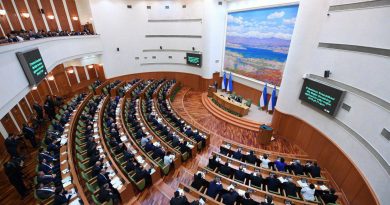Uzbekistan: unknown persons hacked messenger of Kun.uz employee
On April 23, unknown persons hacked the Telegram account of the responsible employee of Kun.uz. The online media reported on the attack in an emergency message, fearing harmful manipulation of content and correspondence.
The fact of the hacking occurred simultaneously at two IP addresses: one from Tashkent (IP-185.139.137.9) and the other from Stockholm (IP-45.91.21.10).
The editors of the media noted the fact that during this process (contrary to the mandatory rules of the messenger), an SMS with a confirmation code wasn’t received on the account owner’s phone.
The employee of the media noticed early in the morning that the number of Telegram sessions had increased by one, and immediately deleted the unknown user.
“And the most interesting thing happened later,” the editorial office said. “An unknown person (s), after deleting unnecessary sessions, actively tried to log in to their account again several times. These attempts also continued after the account owner enabled two-step authentication. Before that, no SMS message (!) was received on the phone, and the account was hacked several times again.”
Earlier, ACCA wrote about regular interference in the editorial policy of Kun.uz and coercion to delete materials by the employees of the State Security Service.
In recent years, at least once a week, the Department has received protests against some materials and given instructions on how to change or delete them completely.
A few days before the incident with the employee of Kun.uz, the ACCA published a request from the blogger Miraziz Bazarov to prevent possible provocations while he is in isolation.
At the hospital, officers from one of the law enforcement agencies guarded him, but he managed to transmit a text that says about the control of personal accounts on social networks after his smartphone and computer were seized on March 31 during the search. Prior to that, he was physically unable to use the devices after being beaten on March 28.




